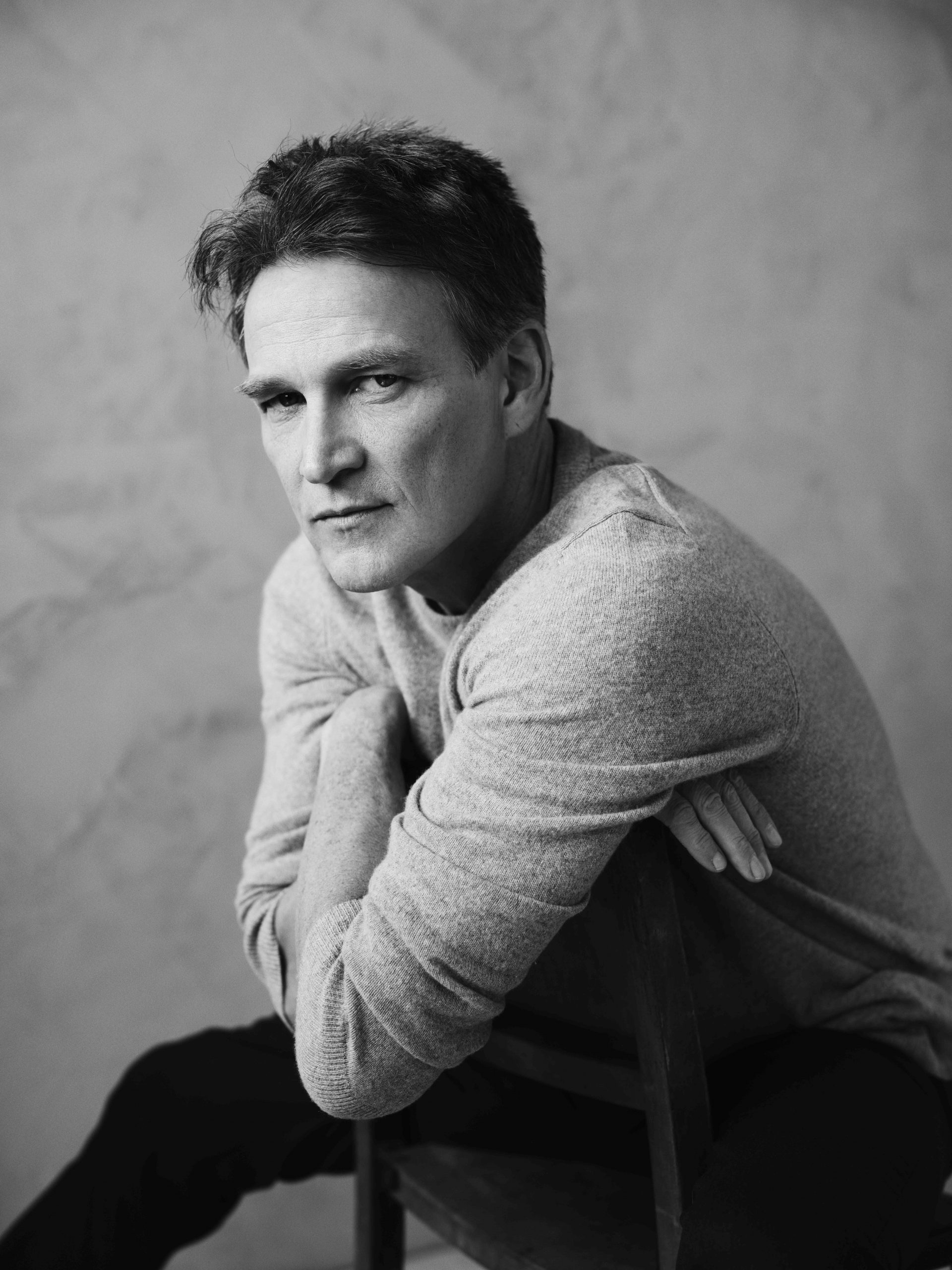Stephen Moyer on Sexy Beast, True Blood and orgy scenes!
Culture
Stephen Moyer, the legendary True Blood man, is back in the excellent new Sexy Beast TV series. He talks to us about gangsters, directing, class, clothes and how sex scenes have really changed through the years...
Stephen Moyer is the actor-director who first rose to superstardom with the groundbreaking HBO vampire show True Blood (2008-2014). For the younger ones out there, True Blood was the Stranger Things of its day, only sexier, and Stephen’s hot vampire Bill was an instant sensation (there was one famous naked Rolling Stone cover shoot featuring him, Alexander Skarsgard, and Anna Paquin, who became his wife). Since then he’s carved a successful career in film and TV – including one of our favourites, the X-Men spin-off series The Gifted – and is now returning to our screens in the new Paramount+ show, Sexy Beast, a prequel to the film.
Now, this series has been met with some suspicion by fans of the lauded Jonathan Glazer original, with its classic performances by Ray Winstone and Sir Ben Kingsley. But in our opinion – and our opinion is to be trusted over anyone else’s, always remember that – the series is a highly entertaining watch in its own right, capturing the edge and verve of the original while dissecting class, masculinity, sexuality and ambition with aplomb. It is aided in all these aspects by a winningly reptilian turn by Stephen as Teddy, the Mr Big character who Ian McShane played in the film. We managed to speak to Stephen about the show and his roles as both an actor and director (he helms the final two episodes), how he’s managed his mental health through the years, and also how the industry has changed in the way it manages sex on screen. It seems things could get really out of hand during the True Blood orgy scenes back in the pre-intimacy coach days.
A nice long read with a brilliant man, for your pleasure…
How are you Stephen?
It’s nice to be in London talking about something that was so much fun to do. I’ve missed all this after the strikes.
So you actually missed interviews? This is incredible to hear.
I enjoy it. It must be a masochistic thing. And I think I’m also absurdly naive and have a goldfish memory. I just go around in circles and thinking that people are going to be nice, knowing full well they’re not going to be. How dare we attack the sacred cow that is Sexy Beast?
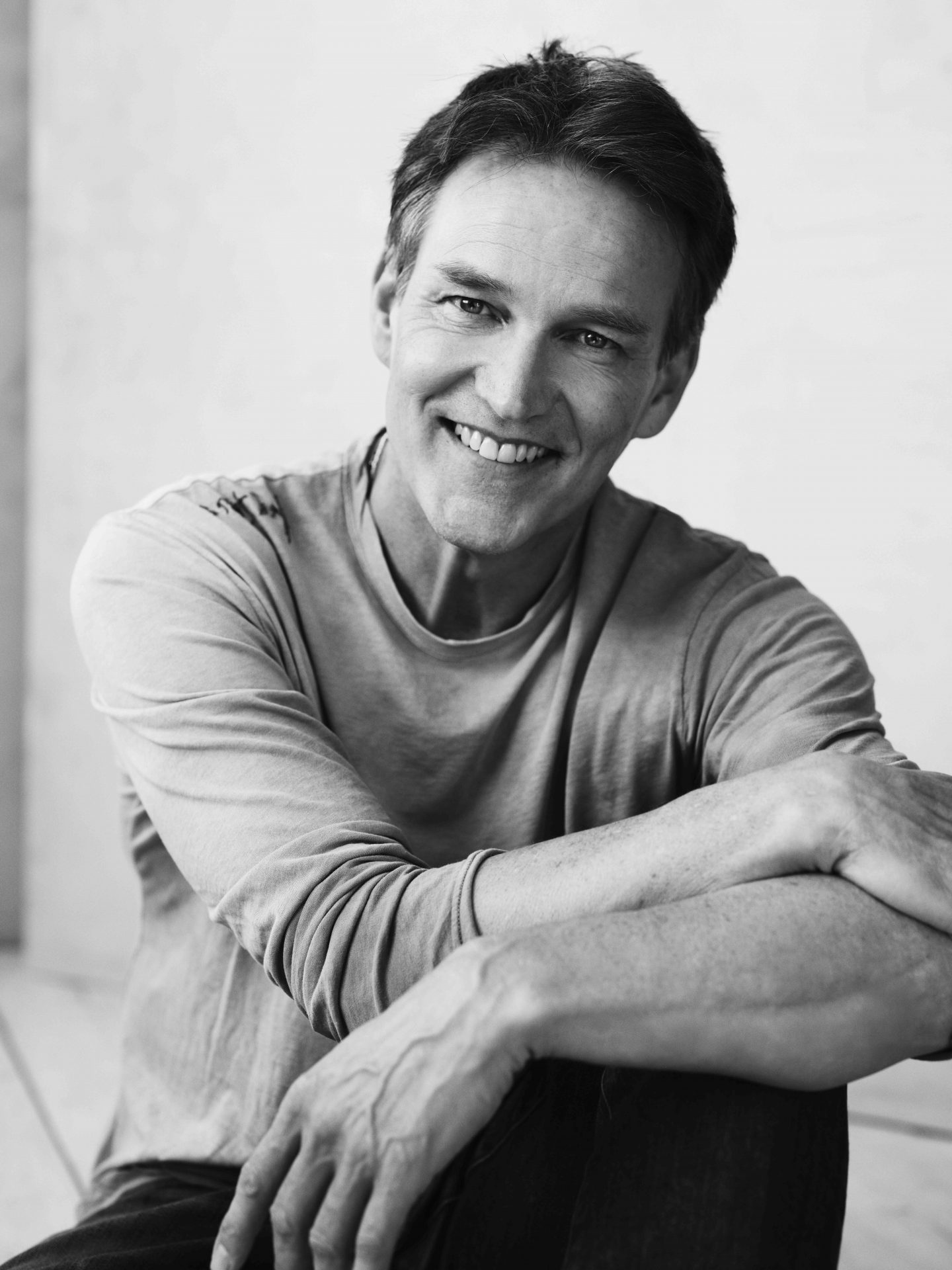
It’s not like we live in a wardrobe somewhere. We knew what was going to happen and we knew how people were going to react. It’s very nice when people look beyond that.
And obviously we were all obsessed with the film, too, which is the reason that we were interested in exploring it. For all of us, James [McArdle, who plays Gal, Winstone’s character] Emun [Elliot, from Guilt, who plays Don, Kingsley’s character] Tamsin [Grieg, surprisingly frightening as Cecilia], Paul Kaye [excellent as Teddy’s right hand man] and Sarah Greene [as Deedee, played by Amanda Redman in the film], to have these extraordinary characters and get to go back ten years and imagine what it was like at the beginning and how they got to be who they are – that’s an actor’s dream.
Did you go back and study at the film?
Yes, because it’s such an interesting piece of work, it’s a psychological thriller, ultimately, rather than just a gangland heist. It’s about masculinity and it’s about power and it’s about protecting your family and how far you’ll go to do it and what will happen if you don’t do it. And Jonathan Glazer is an exceptional man. I remember those commercials that he was directing before he made Sexy Beast, the Guinness commercial with the horses coming out and how extraordinary and how visual he was. I remember being excited that that person had directed a film.
And I also have had the great fortune of working with Ray Winstone, directing him. It was weird because I was editing my film with him in it when this offer came along. I got in touch with him saying, you’re never going to believe this… Ray’s lovely. Ray was just like, ‘oh, mate, awesome. That’s fantastic. Ask me anything you want, anything you need to know’. None of those guys were upset that we were tackling it. Everybody was excited that it was being revisited.
So, yes, I went back, I watched. Spoiler alert: the Kingsley performance, which is so breathtaking in the film, you forget that character disappears in an hour. Right? He’s gone. And then McShane takes over. And McShane is the antithesis of Kingsley. McShane is so extraordinary in the film. It so studied, so menacing, so still. And I’ve thought about it a lot.
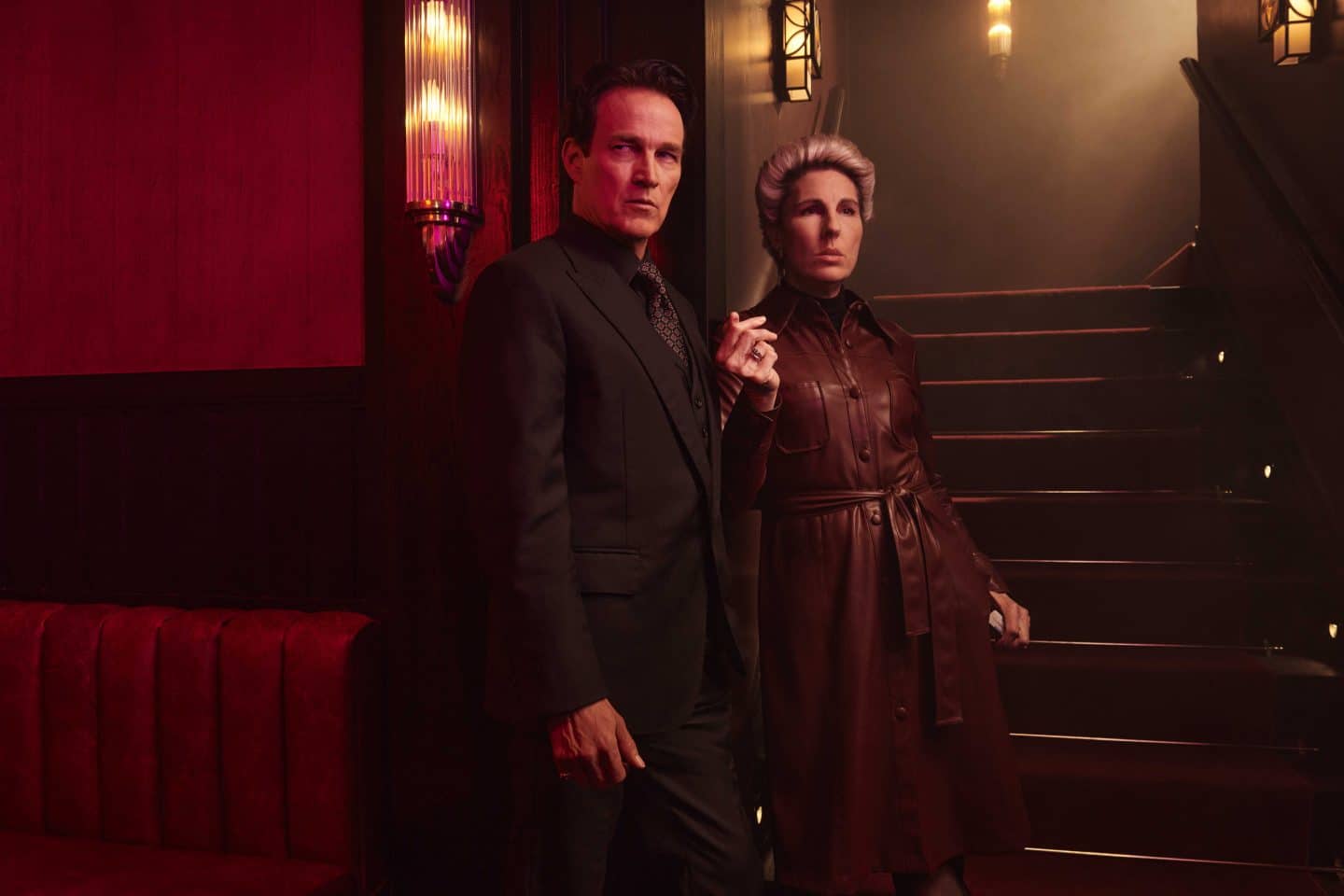
One of the fascinating things about political journalists like Paxman or Humphreys or people like that, is they know when to stop asking questions. They ask a question, the person will answer it and then the questioner remains silent. Depending on how strong, status-wise, or how strong the interviewee feels in themselves, they might take it as like, ‘oh, I’ve got to fill this silence’. That moment, those next 20, 30 seconds is where that person gives up a little part of themselves… that’s Teddy. Ian’s Teddy and my Teddy. And that’s what I’ve tried to really key into. He’s not interested in the first answer, he’s interested in what happens in the next 20 or 30 seconds.
It makes people so uncomfortable in that situation.
The other thing that was quite interesting was I got a sort of kernel of knowledge from the writers and creators in what Teddy might have been when he was younger and what had happened to him when he got to London. I was able to sort of take that idea and then create a biography for myself of who he was, who his parents were, what happened to him when he was a kid.
I had him running away from home and coming to London at a very young age and everything that he would have gone through. And that being like a steel cord that runs through him that absolutely informs every decision that he made.
What else did you do to get yourself in the zone with him?
Well, Ian is beautifully olive skinned, and I’m much paler than that. So we decided, Sam Marshall the makeup designer and myself, to make him really tanned, because that was a thing back in the 90s. People were going to sunbeds and doing all of that. Yes, I’m from Essex: there were sunbed salons everywhere.
I’d also just come off something where my hair was salt and pepper, so we decided to go with the Ian look and darkened the hair too. It was Trump’s tan, Elvis’s hair.
Immediately when you do that, you’re already stepping into somebody that is different from the person that you are, which I find really helpful. When you’re leaving in the morning to go to work, the person that you see just as you’re leaving in the reflection of the door or the mirror is not you. You’re this tan, dark haired person. And the person who walks down the high street with the dogs or goes into Sainsbury’s Local is that guy. People are seeing that guy walk in, and that guy has a very strong sense of who he is. That is dyed hair! You’ve got to have some fucking balls to live like that. And walking around like that in Liverpool [where it was filmed], you have to step into those shoes. All of those things are really helpful. You start just being different.
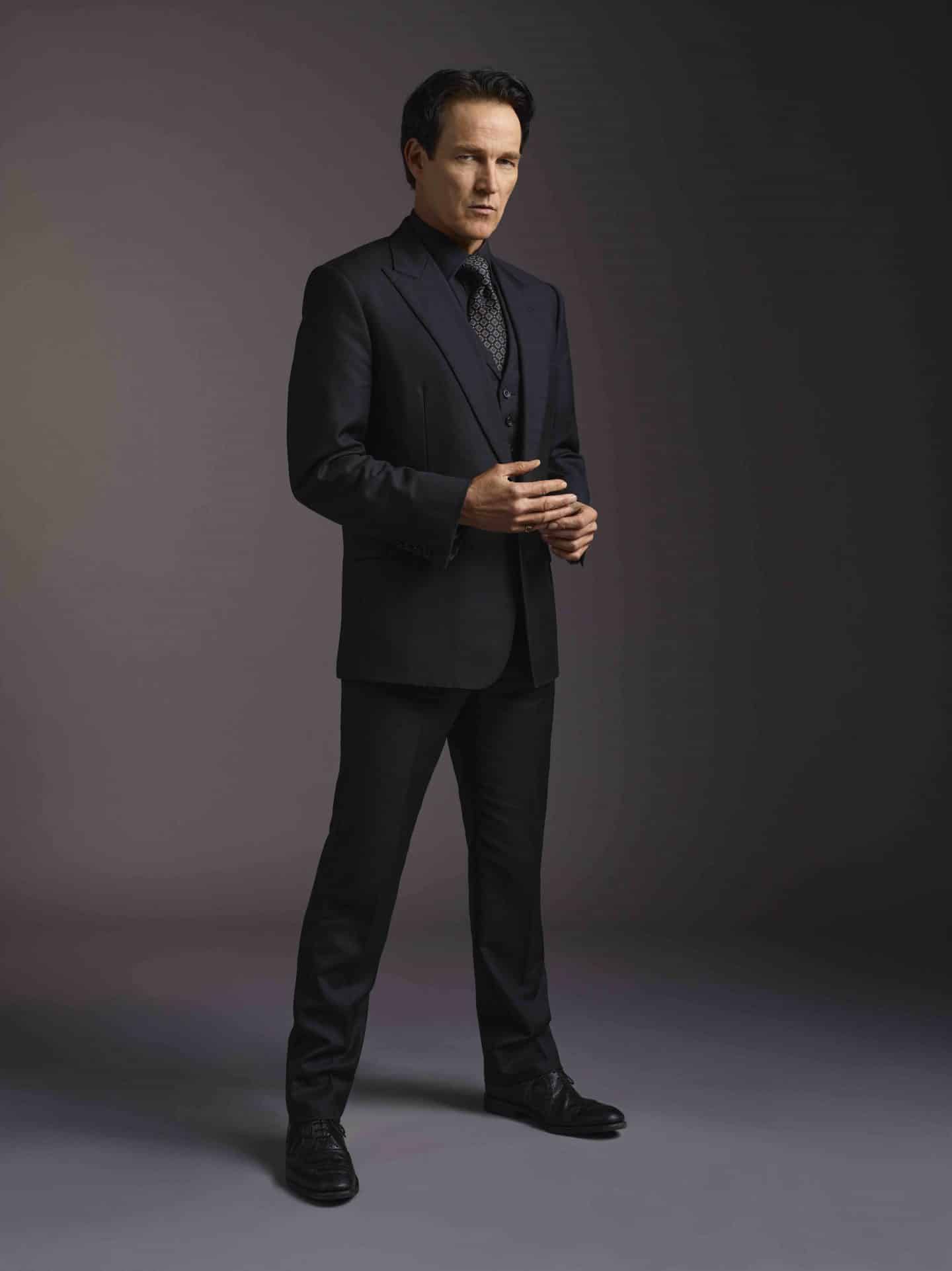
So were people reacting to you oddly?
Yeah. You see people looking at you when you walk past. And when I got off the plane, Cathy Prior, the fantastic wardrobe costumes designer, took me straight to Academy Costumes, which is one of the great costume houses in the world. Adrian Gwillym, who made Daniel Craig’s suits for Bond, made my suits. And he’s fucking legend. We got to create this look with very specific elements. Would he have this? Would he have a turn up? Would he want to be different from everybody else? Would he wear a waistcoat? We ended up with this kind of immaculate silhouette that’s like another shell on top of the trauma from who he was when he was younger.
And maybe that’s what the tan is and maybe that’s what the hair is and maybe that’s what the suit is: a shell to protect him from his previous trauma.
All of these things you use as a sort of character map. As soon as I’ve got a suit on, I’ll stand differently. It changes who a person is when he walks into the room.
That aspect of dressing up isn’t really shown too much with men. You often see the idea that women are dressing to become a certain character in their day to day lives, but men do it as well. And it seems like in that world in particular, you’ve got to dress to play the role.
I think that’s really interesting. If you think about through history, from the American underworld to the British underworld, it goes to that thing of buying class. If you’re not born with it, there is a way of creating it by the way that you look. And people who know will know, when you’re walking down the street, by the lapel, who made that suit.
It’s like that whole thing about Mad Men. It wasn’t a massive hit in America. The joke in Hollywood was, yes, it’s only being watched by a million people, but it’s the right million people. It’s all the tastemakers, it’s all the critics, it’s all the heads of studios.
In the same way, the people that the gangsters are appealing to are the people who would know that that suit was from Savile Row. They would know who that tailor was and they would know how much it cost. So my character might not have been born on a country estate and gone to the right school but he’s wearing the right clothes. And so you have to take him seriously because you know how much that costs.
I know how fucking violent these people could be if you got in the way of them. And just like the currency of the way you dress and the way you hold yourself, there’s also a currency in what people know you will do in terms of violence. That’s a massive currency.
We use it in the show, like Scorsese would do it. It’s very impactful. In the first scene in Sexy Beast, when the boys do the smash and grab of the arcade, it’s really violent. But then you see the boys go to a Sunday roast with the family. And the family don’t ask what they do and they don’t ask where they get the money. It’s about that juxtaposition.
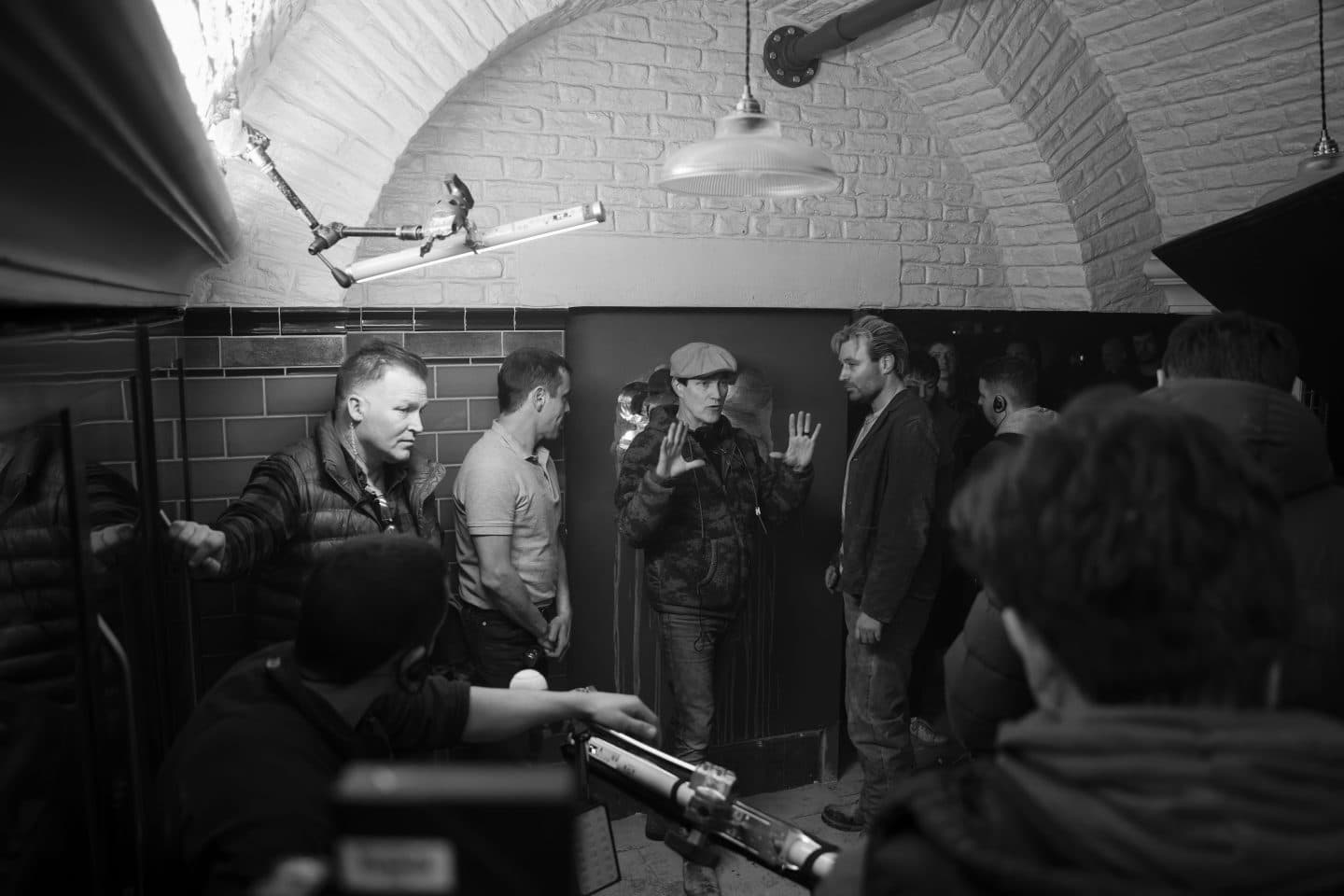
When you’re doing those scenes where you have to be violent and shock everyone, what is that like to play in the room at the time? Do you have to sort of separate yourself from the rest of the cast in order to have that impact? Do you need to feel it?
I think it’s triple, quadruple fold. It’s like, what would I need to do to have that status to be able to make that happen in real life? What would I need to have in my arsenal to create that? That’s the back work that we do. That’s the psychological work of creating a character and having done the research.
But you’ve also got the script. You’re the character who has the power, so there is a way that the dialogue and the scene is going to play out, because of the way it’s written. Then, of course, the director comes in with an idea of how to show power. And one can do that with lenses. One can do that with the height of the camera, one can do that with how low the camera is. De Palma is a great example of this: putting the camera low and making the character massive on screen. So there’s ways within that that you’re helped by the director of photography or the director, which is fascinating.
There’s also something else: somebody like Teddy or Tony Soprano always takes the most powerful seat in the room.
Tamsin would do this when she came in. Tamsin’s extraordinary. She’s one of the most articulate human beings I’ve ever met. She’s really lovely, but she has an intimidating confidence that is very attractive. This feeling of self belief. And sure enough, when she walked in, she said hello, and then she went and sat in the most powerful chair in the room. Right in the corner looking out at everybody.
How have you managed your mental health through the years in your demanding industry? Have you had difficult moments?
I definitely had a moment. I did a lot of theatre when I first came out of college. And I had a moment in ’95. I was burning the candle in the middle, as well as at both ends. The candle was on fire, let’s put that way.
I was in Japan and I had a big wobble on stage playing Romeo. It was during my favourite speech in the play, and I just stopped. I forgot it. And I said all the wrong words in gibberish.
I’m by myself on stage, looking out at the Globe Theatre in Tokyo at a thousand people. They’re waiting for me to carry on. And I didn’t. The ignorance of youth, the beauty, the innocence of youth: it never occurred to me that would happen. But of course, I was partying like a nutter and not getting enough sleep.
There is that naivety when you start out. You’re just doing it. You’re getting employed, you’re doing a gig here, you’re doing a theatre piece there, you’re getting two episodes on something over there. And you’re doing bar work because you’ve got to pay the rent. You’re sort of doing everything that you need to do to get to a point where you’re working.
Where that starts to shift is when you’ve had an element of success, when you’ve had something that pushed you above the parapet. Then it changes.
There came a point where I had to deal with a whole range of things that I’d been avoiding, and then that leads to questioning oneself and one’s place, where you are and what you’re doing and how you go about things. And I’ve spent the next 24 years doing just that.
There’s been all sorts of people who have helped me along the way. And I help people too. I remember in 2003, 2004 I’d done a couple of leads in films and a lead in a TV series which were all due to come out. I’d got this sort of lovely sort of bank of work about to come out but before it did, I didn’t work for eight months. I just couldn’t get a job. It plays with your mindset.
I think any of us who doing front of house staff, who’s dealing with a public persona, where you’re having to be somebody other than yourself in front of people, goes through a sense of, ‘am I going to be able to get through this today?’
At some point along the way, I sort of taught myself to embrace the fear, because it’s only by walking into that fear that you are able to work out who you really, truly are.
I was talking to Paul McKenna, the hypnotist. We were friends in LA, and I was going through a little something and he helped me. And what’s interesting about it is that we all need moments where there’s a bit of course correction through your life in order to make you a better dad, work colleague, lover, friend, husband. Where it’s about putting on the air mask before you put on everybody else’s air mask.
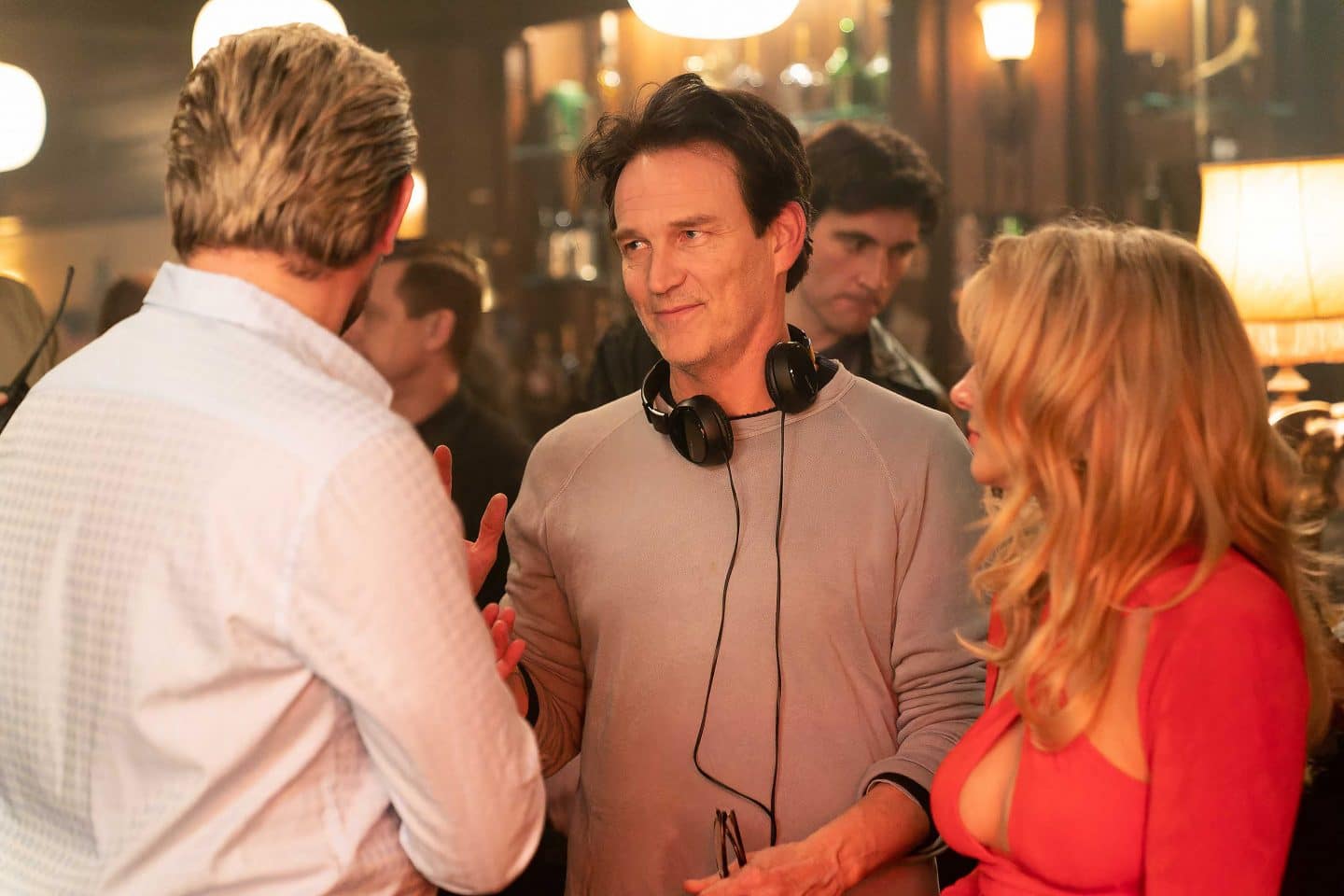
How has the industry changed in terms of support? Like with intimacy coordinators. I bet you didn’t have that on True Blood?
No! I think with intimacy coordinators were all a little bit like, ‘oh, my God, what’s this going to mean? Is it going to make everything so sanitised that there’s no feeling?’ But it’s the absolute opposite. I’m very happy to be able to say it’s the entire antithesis of that, by having somebody there who has the ability to talk psychologically through what your character is going through personally, what you’re going through personally, what you’re comfortable with.
But also having many physical materials that one can use to cover one’s body parts in order to make a situation more comfortable means that instead of not addressing the elephant in the room, you are literally making the elephant in the room the priority.
In Sexy Beast, there is a sequence in episode eight that I directed that involves a lot of intimacy coordination with many, many people. It tells the story of Teddy’s backstory in flashback. And that was a great example of how fantastic it can be because that scene is, I think, horrible, but very real. It looks incredible because everybody in the room knew exactly what the parameters were of what was okay.
Back in True Blood days, there was an orgy scene in season two, and it was put on Craigslist that we wanted people who were prepared to be naked outside having simulated sex!
The people that turned up were prepared to do all of that. And not necessarily simulated. They were naked all night in a situation that was minus freezing in this canyon in California in the middle of winter, where the sun goes down at 3pm because of the mountains.
Are you familiar with In-N-Out burger? Me and Anna that night, as a joke, sent an In-N-Out burger truck to the set for everybody to have dinner at like two in the morning for all of these naked extras.
The difference being that back then there was this orgy, 80 people just going at it, where we are trying to actually make some people not go at it. But now you’re in a situation where everybody knows what the parameters are. And because of that, there is this place you can get to where everybody’s comfortable.
And just finally, why should people watch Sexy Beast?
I think that there are an awful lot of people who will never have watched the film. There’s an awful lot of people who won’t have even heard of the film. It’s 24 years ago.
I think that the really interesting aspect of it is that everybody’s emerging. All of these characters, like the five, six central characters, are in their own little place on the planet, but they’re all stepping up. And stepping up means putting your head above the parapet and that means that you have to do something really dangerous in order to move forward.
It’s the same for DeeDee because she’s trying to change her position as a female sex worker. She’s trying to level up in that industry. Cecilia, Tamsin’s character is trying to level up and all the boys are pushing up, even Teddy is about to put himself into a different situation. And so you’re watching these people emerge set against this fantastic 90s soundtrack, which is absolutely banging. And it’s a lot of fun.
And because it’s a pre Internet world, in order to have great drama, everybody has to be in the same room. So if you need to see somebody and you want to talk to somebody, you have to do it in the room, which I really love. You’ve got all of these great big power players who have to sit around tables and talk or be in wherever they are talking.
And there’s some really high quality actors and look, there’s some really good stuff!
The first three episodes of Sexy Beast are available on Paramount+ now. New Episodes every Thursday.
Shoot credits:
Photography: David Reiss
Grooming: Charlotte Yeomans
Styling: Jay Hines
Styling Assistant: Ashley Powell
Trending

Join The Book of Man
Sign up to our daily newsletters to join the frontline of the revolution in masculinity.




